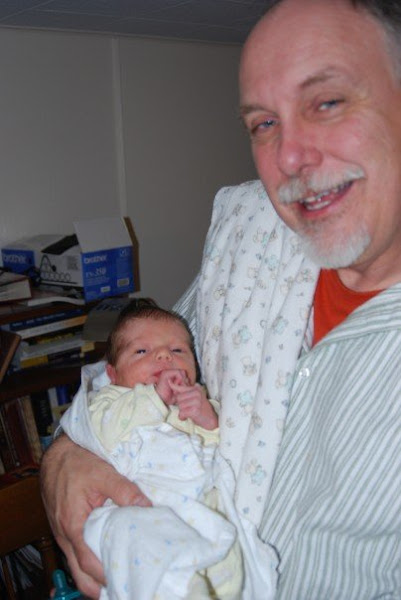I haven't been keeping up as much with this blog, frankly because I began to wonder about the validity of my approach in dealing with affiliates. Was I just sugar coating what amounts to narcissism and lack of commitment? Is there really anything valid about someone's personal sense of "belonging" -- or is that just wishful thinking to try to gloss over the seriousness of the church's predicament?
I've been reading "The Search To Belong: Rethinking Intimacy, Community and Small Groups" by Joseph Myers which has rekindled my interest in affiliates. Myers challenges the belief that intimacy is the goal of all relationships. THis is the assumption that's behind the small group movement -- that ideally 100% of church members ought to be in a small group that shares on an intimate level.
Myers identifies four "spaces" of belonging -- public, social, personal and intimate -- and argues that people can find real connectedness and community on all four levels. It's wrong to try to force people to move to a space that we think is the "right" space to be in. The fact is, that many people's connection to the church will remain at the "public" level -- attending worship (more or less frequently) and taking part in those activities that they find helpful and valuable. We should not assume that unless someone moves through stages to ever deeper commitment and ever greater intimacy that they don't "belong" -- or that the church has "failed."
What the church does is set up two value-laden categories -- "active" and "inactive" -- or, "committed" and "uncommitted," "insider" and "outsider" -- or however you want to label them. We think that the only really valid way of belonging is to be in the inner-most circle. But Myers argues that that does violence to the varied ways in which different people find true community. We try to put everybody in the same box.
This has got me thinking again about Reg Bibby's observation that people we think of as "inactive" or "drop-outs" often have an incredibly resilient and stubborn sense of being part of "their" church -- and if you mess with that, it can blow up in your face.
I think what it comes down to is recognizing that God works in mysterious ways, differently in different people. Who are we to judge that the person who slips into the back pew on a sporadic basis -- or the people who derive great satisfaction out of working at church suppers but avoid prayer groups like the plague -- or the person who watches Robert Schuller on Sunday morning and sends an annual cheque to the church -- who are we to judge that God is not at work in their lives?
That's not to say that we give up on nurturing people or forming them. It's not to say that we don't encourage deeper levels of practice. But, in the words of Alan Roxburgh, the church tends to ask "church questions" rather than "God questions." Our agenda is what will support and perpetuate the church structures familiar to the inner circle, rather than asking "What is God up to in people's lives?" And we ought not to forget that the religious structures of Jesus' day were what actually impeded the work of God in peoples' lives -- and that much of Jesus' ministry was in breaking through those controlling structures.
What I've decided to do is to start rearranging my schedule so I can devote major portions of my time to having coffee with people. Not as an underhanded way of roping them into church activities, but as a way of posing this question -- "Where's God in your life?"
Subscribe to:
Post Comments (Atom)


2 comments:
Thanks for sharing! That was very well said. I wish more ministers devoted time to just having coffee with people and asking them, "Where's God in your life?"
Paul, this posting was really really helpful.
Please do keep meditating and reflecting and reading and writing on these matters.
Daniel
Post a Comment